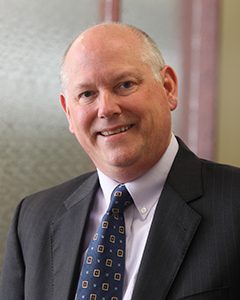The Educated 3(16) Fiduciary

Many financial organizations tout the benefits of their ERISA 3(16) fiduciary services and, frankly, many of these messages can sound irresistibly compelling. But buyer beware; not all 3(16) fiduciary services are created equal. In today’s increasingly litigious environment, it is imperative for plan sponsors to be educated consumers of 3(16) fiduciary services.
Running a qualified retirement plan for employees is like running a business for clients. Just as with a business, the administrative responsibilities and liabilities of operating a plan are significant. The Department of Labor (DOL) views all business owners who sponsor retirement plans for employees as “3(16)” fiduciaries under federal law [ERISA Section 3(16)]. A 3(16) fiduciary is responsible for ensuring the plan is operated in compliance with the rules of ERISA day in and day out. One can say, the ERISA “buck stops here” on the 3(16) plan administrator’s desk.
As fiduciaries, plan sponsors are held to the highest standard of care and must operate their plans in the best interest of participants. That means their actions with respect to their plans will be judged against the “Prudent Person” rule, which says that all decisions and acts must be carried out “… with the care, skill, prudence, and diligence…” of a knowledgeable person. The DOL assumes plan sponsors know what they are doing when it comes to running a plan—and if they don’t—they should seek out competent support or be at risk of a fiduciary breach. From an ERISA standpoint, a plan’s “Jack of all trades,” must be master of all—not none.
The DOL can hold plan sponsors personally liable for failing to fulfill their fiduciary obligations to their plan participants. Plan fiduciaries who fail in their duties can face costly civil and criminal penalties, too. Perhaps even jail time! All of this makes a strong argument for seeking expert help in running a qualified retirement plan. Thank goodness ERISA allows plan sponsors to outsource some of their 3(16) fiduciary responsibilities by formally appointing another entity to assume some of their plans’ administrative functions.
By engaging a 3(16)-plan administrator, the plan sponsor shifts fiduciary responsibility to the provider for the services specifically contracted (e.g., plan reporting, participant disclosures, distribution authorization, plan testing, etc.). It is important to note that a plan sponsor may never fully eliminate its fiduciary oversight responsibilities for the plan, and remains “on the hook” for the prudent selection and monitoring of the 3(16) plan administrator.
There are lots of organizations out there that offer outsourced 3(16) fiduciary services (e.g., TPAs, trust companies, RIAs, etc.). The process of selecting a 3(16) outsourced solution must be carried out in a prudent manner and solely in the interest of the plan participants. The DOL requires the plan sponsor to engage in an objective process designed to elicit information necessary to evaluate candidates considering, but not limited to, the following:
- Qualifications of the service provider,
- Whether it has a consistent track record of service,
- Its professional “bench-strength” and tenure of staff,
- The quality of services provided and
- Reasonableness of the provider’s fees in light of the services provided.
In addition, such process should be designed to avoid self-dealing, conflicts of interest or other improper influence.
In the delicate area of plan administration, it’s prudent to go with an experienced professional. Pentegra is a “fiduciary first” and has been for over 75 years. Pentegra’s 3(16) Fiduciary Solutions are comprehensive, proven and flexible. Join us as we celebrate 3(16) Day on March 16th. Learn more about our 3(16) Day at 316fiduciaryday.com
About the Author
